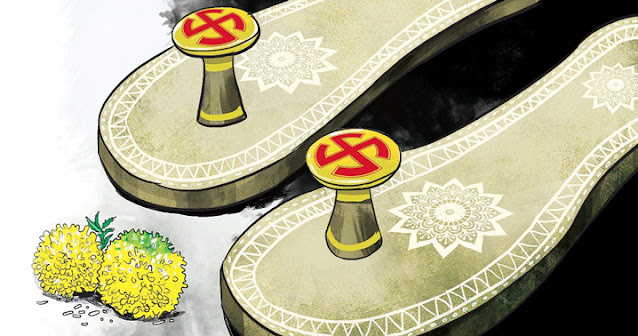‘Oryza rufipogon’ rare species of wild rice found in Borjuli
Sonitpur becomes second biodiversity heritage site of Assam
‘Oryza rufipogon’ a rare species of wild rice was found here in a land near Borjuli Tea Estate in Sonitpur district covering 2 hectares of land. Dr. Oinam Sunanda Devi, scientific officer, Assam State Biodiversity Board said unfolding the facts about the wild rice that Rufipogon is also known as brown beard rice. It is a perennial, tufted grass which grows in shallow water. The particular rice species is tolerant of flooding and acid soils. This rice species is flood resistant. A team of the Indian Council of Agriculture Research is presently conducting a study on the rice species. We have to wait for the study results for its preservation.
Further, she added that the species of rice offers a wide range of health benefits and this variety can be used for cultivation in flood-prone areas.
The Assam government acquisitioned the crop growing area last year soon after the discovery of the rice species which is now under process of declaring as a Biodiversity Heritage Site (BHS). The Assam government has all set to declare the area as a Biodiversity Heritage Site (BHS) after obtaining the recommendation of ASBB. Till date, Assam has only one Biodiversity Heritage Site in Majuli, which was notified as the first Biodiversity Heritage Site on May 26, 2017 under Section- 37 of Biological Diversity Act, 2002 and Rule 24(1) of the Assam Biodiversity Rules 2010. Majuli is a place with its fertile floodplains and highly productive wetlands that forms an identical habitat for a variety of birds and animals. Majuli also produces about a hundred different varieties of rice.
According to ASBB member secretary Pavan Kumar, “After Majuli, the Assam State Biodiversity Board (ASBB) will set up two more Biodiversity Heritage Sites at Borjuli in Sonitpur and Hajong Lake in Dima Hasao”. ASBB already has constituted 2,549 Biodiversity Management Committees (BMCs) under the jurisdiction of Gaon Panchayat, Anchalik Panchayat and Zila Parishad. There are 40 BMCs under three Autonomous Councils – Bodoland Territorial Council (BTC), Karbi Anglong Autonomous Council (KAAC) and North Cachar Hills Autonomous Council (NCHAC). BMCs are bestowed with the responsibility to promote and conserve biological diversity including preservation of habitats, conservation of land races, folk varieties and cultivars, domesticated stocks, breeds of animals, microorganisms and chronicling of knowledge related to biological diversity.
source: https://www.thehillstimes.in/regional/oryza-rufipogon-rare-species-of-wild-rice-found-in-borjuli/


Comments
Post a Comment